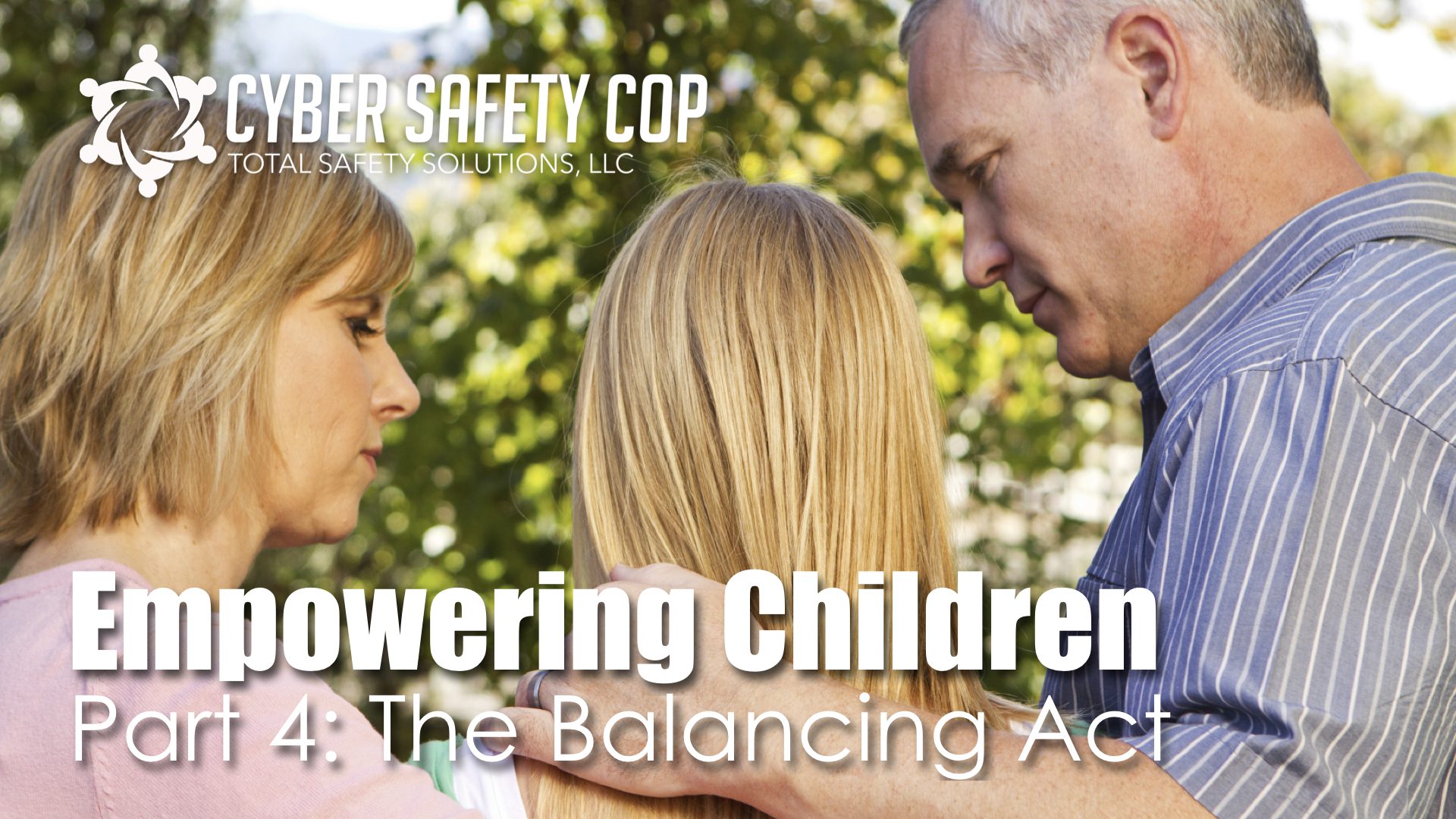Teens are under a lot of pressure to succeed. Here’s how to know if your child is feeling overwhelmed by their world.
The day was normal until about two in the afternoon. I was walking around the high school patrolling the campus when I received the radio call, “Officer Mike, we need you in the Administration Office.” I received calls like this numerous times throughout the day; however, the tone in the secretary’s voice was different this time. It sounded concerned and fearful. This was rare and very different.
I made my way to the Administration Office and contacted the secretary. Her eyes had fear in them, and her emotions had been shaken. Without saying a word, she handed me a note that stated John Smith’s mom called and told me he had his father’s handgun. John had texted her a few minutes ago stating he was on campus, just failed an AP Science test, and was going to blow his head off. At this very second, adrenaline and cortisol coursed through my veins as if my internal fight or flight emergency button had been pressed. My thoughts: John’s threat was real, and I had to find him.
The Assistant Principal, who had already been informed of the phone call, walked out of her office and handed me John’s schedule and car description. John was a senior, and I knew where the seniors parked their cars on campus. A radio transmission to the school proctors was made which informed them to be on the lookout for John, avoid all contact, and to notify me immediately of his location if found. I notified the police dispatch, informed them of the incident, and requested local units to respond immediately.
As I was walking towards the senior’s parking lot, a proctor driving in the opposite direction in her golf cart informed me she saw John’s car parked in the senior lot by the tennis courts. She stated it was occupied by one male in the driver’s seat. As I got closer, I saw John in his car starring out the windshield. I could not see his face or his hands. His head was motionless as it faced forward. Not knowing if he had a gun, but anticipating the worst, I approached slowly from behind the car within the blind spots of his side view mirrors. My handgun was out of its holster at the low ready by my right side. I heard the sirens of my partners from a distance, but the only thing I cared about was John’s hands. His hands are what would be holding the gun and my greatest threat.
I knocked on the driver’s side back left fender near the trunk and called out to John in a friendly, yet concerned, tone while hiding my gun from his sight behind my right thigh. The driver’s side door slowly opened with the assistance of his left hand. He slightly leaned out of the door’s opening, turned to look at me, and his eyes told me he had been wrestling with sadness and anger. I could see the pain on his face as he glared, but I couldn’t see his right hand. I asked him to show me his hands slowly, and he became argumentative. I told him I would explain everything to him later, but for now, I needed to see his hands for both of our safety. I directed him to show me his hands, and he noticed my right hand with my gun at my side. He slowly, yet still in a defiant manner, showed me his hands and started yelling at me in disgust because I had my gun out of its holster. He exited his car on my command, turned away from me and placed his hands behind his back as I requested. I put my gun away, quickly handcuffed him, searched him, and he became an emotional firestorm of anger and sadness.
There was no gun found on him, and my partners did not find one in his car. It was a huge relief; however, I needed to know John’s side of the story. But, little did I realize at this moment the lesson he was about to teach me would be about parenting…and it would stay with me forever.
John began to calm down as I talked with him. He regained control of his emotions respectfully, although still agitated, and I removed his handcuffs. I walked with him back to the Administration Office, and we sat down in the Assistant Principal’s Office. John’s dad arrived, the office door was closed for privacy, and we starred at John, ready to listen. He couldn’t contain it any longer. Tears poured down his cheeks, his hands covered his emotionally stricken face, and he sobbed. SOBBED! His dad moved next to him on his left side, placed his right arm around him, and hugged him. John’s emotions were contagious, and his pain was real. His dad’s composure couldn’t hold the line any longer, and his emotional wall broke. I had to fight my own emotions because it was obvious how much he was loved and how much he hurt. Once he regained control, I told John about the message we received from his mom. I said to John, “Please help us understand.”
As John disclosed his testimony, I sat motionless in my chair. I never knew his stress at his age or his disappointments. Times were competitive when I was in high school; however, this was at a completely different level. I realized at this moment how important it was for parents to maintain a healthy balance in their children’s lives.
John was a straight “A” student. He had a 4.2 Grade Point Average (GPA) and was in Advanced Placement (AP) classes which required a greater amount of work and study versus the normal student’s curriculum. He told us how hard he had worked these last four years, including his varsity accomplishments in sports, and other extracurricular activities. John told us this as the tears dripped off his nose, while he stared at the floor. His eyes slowly rose and made contact with mine. He told me he had submitted his college application to four universities, the only UC’s he wanted to attend; and in one week, last week, he received four denial letters rejecting his interests. His face began to strain as he tried to fight back his internal struggle. His eyes clinched as the tears surfaced. He bent over his lap as his hands covered his face. His pain intensified over the thoughts of his future, and he said, “What’s the point? It’s all been a waste of time.”
As we listened to John, we learned more about how stringent his home life was. It appeared his mother had a strong since of drive and demand which influenced John’s discipline, hard work, as well as, limited his choices and freedoms. As I listened, I wondered where the balance in his life was. There wasn’t a lot of happiness within John as he expelled his feelings towards his mom and her expectations of him. At the end of the meeting, John told us he had no desire to injure himself; rather, his mom overreacted to his text regarding how he felt he performed on his science test. It was obvious John was overwhelmed, exhausted, and drowning in the thoughts of wasted efforts and his perceived failure.
“The challenge of work-life balance is without a question one of the most significant struggles faced by modern man.” -Stephen Covey
By the time John left with his dad, I had forever changed my perspective and expectations for my own children. If you want a healthy and balanced life for your child, consider the following:
- Training Talents: Every child is different. Even if they’re identical twins, they’re going to have some different talents, gifts, interests and personalities. A huge part of being a parent is to identify your children’s talents and nurture their development towards their full potential. Exposing your children to a wide variety of multiple disciplines like music, art, sports, academics, dance, etc.; as well as, seeing what they enjoy is key here. In what ways do your children excel and what do they enjoy doing? Having both variables (success and enjoyment) greatly helps offsets the required hard work and provides a realistic expectation of achievement, hopes, and goals.
Why: Our children’s talents are unique to them, not their siblings, and not to us. We as parents need to remember that raising our children doesn’t mean we relive our youth vicariously through them or compare them to their brothers or sisters. By finding their talents, we can help them enjoy their skills and developmental stages through positive discipline; in other words, they’ll enjoy doing the work most of the time, not all the time. Let’s be realistic, there’s always room for the grit and grind, and we must lovingly encourage them to embrace these moments of discipline. Forcing a child into a skillset where they’re awkwardly challenged due to cerebral or athletic impediments; all the while, demanding them to be a success leads down a path of painful memories and regret for both sides. Finding the balance between leniency, developing their interest, and not being over bearing is crucial for their long term good. The greatest expectation of success I’ve come to admire is through the words of the legendary basketball coach John Wooden, and I hope you embrace it, too, as a parent:
“Success is peace of mind which is a direct result of self-satisfaction in knowing you did your best to become the best you are capable of becoming.” – John Wooden
- Be Reasonable: Expectations and attitudes are a double edge sword. Goal setting is an important part of life, and our children need to learn this fundamental ability from us; however, is there a contingency plan when their hard work doesn’t pay the ticket to the desired dream? Disappointment is a teacher, not a mortician. Having a balancing act includes the failures, the resets, and the alternative futures; in other words, you’ve incorporated a safety net. Sometimes those failures teach us more about ourselves than the successes do. It’s called fortitude. Train your children how to respond to the failures in a logical way; as well as, how to embrace their emotions in a constructive manner versus allowing them to destruct them.
Embrace your children’s talents and have them tell you their dreams. Talk about their journey with them and encourage them along the way; all the while, pointing out how you see them developing because of their daily grind. The byproduct of their dream’s pursuit might just be their talent to their purpose in life.
“Success is not final, failure is not fatal: it is the courage to continue that counts.” -Winston Churchill
- The Gauges: Life is full of dichotomies, and monitoring your children’s gauges are a huge key to their successful growth. I’ve read about “Tiger Moms” and after hearing John talk about his, I think she might have been one and missed this tool. Hard work needs rest. The grind needs a release. Busyness needs freedom, and tough love needs tenderness. You’ve monitored the gauges on your car’s dashboard to prevent the empty tank and this principle parallels your kid’s needs. You must monitor your children’s gauges to prevent them from breaking down, too.
Here are four key gauges to monitor:
- Grades: If their scores start slipping, find out why. Are they being overly challenged with excessive pressures such as too many AP classes, or is their discipline slipping? Are they involved in too many activities and spread too thin? Find out the cause, and have them game plan the solution with you.
- Friendships: Make sure their friendships are healthy and constructive towards your home’s morals and values; as well as, their goals. When stressors start to negatively affect their gauges, they’ll need to be around friends who will support them towards their goals while staying true to their moral compass. The old saying, “Show me your friends, and I’ll show you your future” holds true to its wisdom today.
- Family Dinners: The more together time you create during meal time, without technology distractions, the more healthy your children become overall. Look at meal times as a tune up for your family. It’s that important! Breakfast, lunch, or dinner, at home or in the car; it doesn’t matter, just make it a priority to break bread and fellowship as a family. Check out this website: https://www.thescramble.com/family-dinner/family-dinner-statistics/
- Exercise: “Exercise reduces levels of the body’s stress hormones, such as adrenaline and cortisol. It also stimulates the production of endorphins, chemicals in the brain that are the body’s natural painkillers and mood elevators.”1 Exercise is a healthy coping tool to counter life’s challenges, and our children need to be taught this. Encourage them to workout, run, lift weights, and swim. The benefits (self-esteem, confidence, mental toughness and pain management) are a huge part of the balancing act. For an even greater reward, do it with them and encourage each other. If you physically can’t, at least coach them and praise their hard work and development.
John will forever be in my memories as my wife and I raise our three sons. His perceived broken dreams built the blueprints to my expectations as a dad. I hope he found an alternative path to his goals. No doubt those four colleges missed out on an amazing young man; but then again, maybe he found a detour through the support of his family that was more fulfilling. I truly hope so. Never forget the balance!
Next Steps
- Educate yourself about social media and how to mentor your child’s through their digital world.
- We speak to parents at schools throughout the United States. Find a class near you or find out how to bring a seminar to your child’s school.
- Read the definitive guide for online safety for families, Parenting in the Digital World. If you haven’t already, subscribe to our newsletter.
- Install Bark on your child’s phone. Bark will passively monitor your child’s social media and let you know if there is a problem. Use the promo code, “cybersafetycop” to get 15% off.
References:
https://www.health.harvard.edu/staying-healthy/exercising-to-relax





